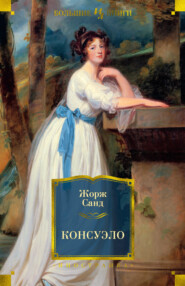По всем вопросам обращайтесь на: info@litportal.ru
(©) 2003-2024.
✖
The George Sand-Gustave Flaubert Letters
Настройки чтения
Размер шрифта
Высота строк
Поля
Frenchmen, let us love one another, my God! my God! 1et us love one another or we are lost. Let us destroy, let us deny, let us annihilate politics, since it divides us and arms us against one another; let us ask from no one what he was and what he wanted yesterday. Yesterday all the world was mistaken, let us know what we want today. If it is not liberty for all and fraternity towards all, do not let us attempt to solve the problem of humanity, we are not worthy of defining it, we are not capable of comprehending it. Equality is a thing that does not impose itself, it is a free plant that grows only on fertile lands, in salubrious air. It does not take root on barricades, we know that now! It is immediately trodden under the foot of the conqueror, whoever he may be. Let us desire to establish it in our customs, let us be eager to consecrate it in our ideas. Let us give it for a starting point, patriotic charity, love! It is the part of a madman to think that one issues from a battle with respect for human rights. All civil war has brought forth and will bring forth great crime…
Unfortunate International, is it true that you believe in the lie that strength is superior to right? If you are as numerous, as powerful as one fancies, is it possible that you profess destruction and hatred as a duty? No, your power is a phantom of death. A great number of men of every nationality would not, could not, deliberate and act in favor of an iniquitous principle. If you are the ferocious party of the European people, something like the Anabaptists of Munster, like them you will destroy yourself with your own hands. If, on the contrary, you are a great and legitimate fraternal association, your duty is to enlighten your adherents and to deny those who cheapen and compromise your principles. I hope still that you include in your bosom, humane and hard-working men in great numbers, and that they suffer and blush at seeing bandits take shelter under your name. In this case your silence is inept and cowardly. Have you not a single member capable of protesting against ignoble attacks, against idiotic principles, against furious madness? Your chosen chiefs, your governors, your inspirers, are they all brigands and idiots? No, it is impossible; there are no groups, there is no club, there are no crossroads where a voice of truth could not make itself heard. Speak then, justify yourself, proclaim your gospel. Dissolve yourself in order to make yourself over if the discord is in your own midst. Make an appeal to the future if you are not an ancient invasion of Barbarians. Tell those who still love the people what they ought to do for them, and if you have nothing to say, if you cannot speak a word of life, if the iniquities of your mysteries are sealed by fear, renounce noble sympathies, live on the scorn of honest folk, and struggle between the jailer and the police.
All France has heard the word of your destiny which might have been the word of hers. She has waited for it in vain. I too, simple, I waited. While blaming the means I did not want to prejudice the end. There has always been one in revolutions, and the revolutions that fail are not always those with the weakest basis. A patriotic fanaticism seems to have been the first sentiment of this struggle. These lost children of the democratic army were going perhaps to subscribe to an inevitable peace that they judged shameful: Paris had sworn to bury herself under her ruins.
The democratic people were going to force the bourgeois to keep their word. They took possession of the cannon, they were going to turn them on the Prussians, it was mad, but it was grand… Not at all. The first act of the Commune is to consent to the peace, and in all the course of its management, it does not have an insult, not a threat for the enemy, it conceives and commits the remarkable cowardice of overturning under the eyes of the enemy the column that recalls his defeats and our victories. It is angry against the powers emanating from universal suffrage, and yet it invokes this suffrage in Paris to constitute itself. It is true that this was not favorable to it; it dispenses with the appearance of legality that it intended to give itself and functions by brute force, without invoking any other right than that of hate and scorn for all that is not itself. It proclaims POSITIVE SOCIAL SCIENCE of which it calls itself the sole depository, but about which it does not let a word escape in its deliberations and in its decrees. It declares that it is going to free man from his shackles and his prejudices, and at that very instant, it exercises a power without control and threatens with death whoever is not convinced of its infallibility. At the same time it pretends to take up the tradition of the Jacobins, it usurps the papal social authority and assumes the dictatorship. What sort of a republic is that? I see nothing vital in it, nothing rational, nothing constituted, nothing constitutable. It is an orgy of false reformers who have not one idea, not one principle, not the least serious organization, not the least solidarity with the nation, not the least outlook towards the future. Ignorance, cynicism and brutality, that is all that emanates from this false social revolution. Liberation of the lowest instincts, impotence of bold ambitions, scandal of shameless usurpations. That is the spectacle which we have just seen. Moreover, this Commune has inspired the most deadly disgust in the most ardent political men, men most devoted to the democracy. After useless essays, they have understood that there was no reconciliation possible where there were no principles; they withdrew from it with consternation, with sorrow, and, the next day, the Commune declared them traitors, and decreed their arrest. They would have been shot if they had remained in its hands.
And you, friend, you want me to see these things with a stoic indifference? You want me to say: man is made thus, crime is his expression, infamy is his nature?
No, a hundred times no. Humanity is outraged in me and with me. We must not dissimulate nor try to forget this indignation which is one of the most passionate forms of love. We must make great efforts in behalf of brotherhood to repair the ravages of hate. We must put an end to the scourge, wipe out infamy with scorn, and inaugurate by faith the resurrection of the country.
G. Sand
CXCVIII. TO GUSTAVE FLAUBERT
Nohant, 16 September, 1871
Dear old friend,
I answered you day before yesterday, and my letter took such proportions that I sent it as an article to le Temps for my next fortnightly contribution; for I have promised to give them two articles a month. The letter a un ami does not indicate you by even an initial, for I do not want to argue against you in public. I tell you again in it my reasons for suffering and for hoping still. I shall send it to you and that will be talking with you again. You will see that my chagrin is a part of me, and that believing progress to be a dream does not depend on me. Without this hope no one is good for anything. The mandarins do not need knowledge and even the education of a limited number of people has no longer reason for existing unless there is hope of influence on the masses; philosophers have only to keep silent and those great minds on whom the need of your soul leans, Shakespeare, Moliere, Voltaire, etc. have no reason for existing and for expressing themselves.
Come, let me suffer! That is worth more than viewing INJUSTICE WITH A SERENE COUNTENANCE, as Shakespeare says. When I have drained my cup of bitterness, I shall feel better. I am a woman, I have affections, sympathies, and wrath. I shall never be a sage, nor a scholar.
I received a kind little note from the Princess Mathilde. Is she then again settled in Paris? Has she anything to live on from the effects of M. Demidoff, her late and I think unworthy husband? On the whole it is brave and good of her to return near to her friends, at the risk of new upsets.
I am glad that these little faces of children pleased you. I embrace you very much, you are so kind, I was sure of it. Although you are a mandarin, I do not think that you are like a Chinaman at all, and I love you with a full heart.
I am working like a convict.
G. Sand
CXCIX. TO GEORGE SAND
Dear master, I received your article yesterday, and I should answer it at length if I were not in the midst of preparations for my departure for Paris. I am going to try to finish up with Aisse.
The middle of your letter made me SHED A TEAR, without converting me, of course. I was moved, that was all, without being persuaded.
I look vainly in your article for one word: "justice," and all our ill comes from forgetting absolutely that first notion of morality, which to my way of thinking composes all morality. Humanitarianism, sentiment, the ideal, have played us sufficiently mean tricks for us to try righteousness and science.
If France does not pass in a short time to the crisis, I believe that she will be irrevocably lost. Free compulsory education will do nothing but augment the number of imbeciles. Renan has said that very well in the preface to his Questions contemporaines. What we need most of all, is a natural, that is to say, a legitimate aristocracy. No one can do anything without a head, and universal suffrage as it exists is more stupid than divine right. You will see remarkable things if they let it keep on! The masses, the numbers, are always idiotic. I have few convictions, but I have that one strongly. But the masses must be respected, however inept they may be, because they contain the germs of an incalculable fecundity. Give it liberty but not power.
I believe no more than you do in class distinction. Castes belong to archeology. But I believe that the poor hate the rich, and that the rich are afraid of the poor. It will be so forever. It is as useless to preach love to the one as to the other. The most important thing is to instruct the rich, who, on the whole, are the strongest. Enlighten the bourgeois first, for he knows nothing, absolutely nothing. The whole dream of democracy is to elevate the proletarian to the level of the imbecility of the bourgeois. The dream is partly accomplished. He reads the same papers and has the same passions.
The three degrees of education have shown within the last year what they can accomplish: (1) higher education made Prussia win; (2) secondary education, bourgeois, produced the men of the 4th of September; (3) primary education gave us the Commune. Its minister of public instruction was the great Valles, who boasted that he scorned Homer!
In three years every Frenchman can know how to read. Do you think that we shall be the better off? Imagine on the other hand that in each commune, there was ONE bourgeois, only one, who had read Bastiat, and that this bourgeois was respected, things would change.
However I am not discouraged as you are, and the present government pleases me, because it has no principle, no metaphysics, no humbug. I express myself very badly. Moreover you deserve a different response, but I am much hurried.
I hear today that the mass of the Parisians regrets Badinguet. A plebiscite would declare for him, I do not doubt it, universal suffrage is such a fine thing.
CC. TO GUSTAVE FLAUBERT
Nohant, 10 October, 1871
I am answering your post scriptum, if I had answered Flaubert I should not have … ANSWERED, knowing well that your heart does not always agree with your mind, a discordance into which we all moreover are continually compelled to fall. I answered a part of a letter of some friend whom no one knows, no one can recognize, since I address myself to a part of your reasoning that is not you entirely.
You are a troubadour all the same, and if I had to write to you PUBLICLY the character would be what it ought to be. But our real discussions ought to remain between ourselves, like caresses between lovers, and even sweeter, since friendship also has its mysteries without the storms of personality.
That letter that you wrote me in haste, is full of well expressed truths against which I do not protest. But the connection and agreement between your truths of reason and my truths of sentiment must be found. France, alas! is neither on your side nor my side; she is on the side of blindness, ignorance and folly. Oh! that I do not deny, it is exactly that over which I despair.
Is this a time to put on Aisse? You told me it was a thing of distinction, delicate like all that HE did, and I hear that the public of the theatres is more THICKHEADED than ever. You would do well to see two or three plays, no matter which, in order to appreciate the literary condition of the Parisian. The provinces will contribute less than in the past. The little fortunes are too much cut down to permit frequent trips to Paris.
If Paris offered, as in my youth, an intelligent and influential nucleus, a good play would perhaps not have a hundred performances, but a bad play would not have three hundred. But this nucleus has become imperceptible and its influence is swamped. Who then will fill the theatres? The shopkeepers of Paris, without a guide, and without good criticism? Well, you are not the master in the matter of Aisse. There is an heir who is impatient, probably. – They write me that Chilly is very; seriously ill, and that Pierre Berton is reengaged.
You must be very busy; I will not write a long letter to you.
I embrace you affectionately, my children love you and ask to be remembered to you.
G. Sand
CCI. TO GEORGE SAND
Never, dear good master, have you given such a proof of your inconceivable candor! Now, seriously, you think that you have offended me! The first page is almost like excuses! It made me laugh heartily! Besides, you can always say everything to me, to me! everything! Your blows will be caresses to me.
Now let us talk again! I continually repeat my insistence on justice! Do you see how they are denying it everywhere? Has not modern criticism abandoned art for history? The intrinsic value of a book is nothing in the school of Sainte-Beuve and Taine. They take everything into consideration there except talent. Thence, in the petty journals, the abuse of personality, the biographies, the diatribes. Conclusion: lack of respect on the part of the public.
In the theatre, the same thing. They don't bother about the play, but the lesson to be preached. Our friend Dumas dreams the glory of Lacordaire, or rather of Ravignan! To prevent the tucking up of petticoats has become with him obsession. We can not have progressed very far since all morality consists for women, in not committing adultery, and for men in abstaining from theft! In short, the first injustice is practised by literature; it has no interest in esthetics, which is only a higher justice. The romantics will have a fine account to render with their immoral sentimentality. Do you recall a bit of Victor Hugo in la Legende des siecles, where a sultan is saved because he had pity on a pig? it is always the story of the penitent thief blessed because he has repented! To repent is good, but not to do evil is better. The school of rehabilitations has led us to see no difference between a rascal and an honest man. I became enraged once before witnesses, against Sainte-Beuve, while begging him to have as much indulgence for Balzac as he had for Jules Lecomte. He answered me, calling me a dolt! That is where BREADTH OF VIEW leads you.
They have so lost all sense of proportion, that the war council at Versailles treats Pipe-en-Bois more harshly than M. Courbet, Maroteau is condemned to death like Rossel! It is madness! These gentlemen, however, interest me very little. I think that they should have condemned to the galleys all the Commune, and have forced these bloody imbeciles to clear up the ruins of Paris, with a chain on their necks, like ordinary convicts. But that would have wounded HUMANITY. They are kind to the mad dogs, and not at all to the people whom the dogs have bitten.
That will not change so long as universal suffrage is what it is. Every man (as I think), no matter how low he is, has a right to ONE voice, his own, but he is not the equal of his neighbor, who may be worth a hundred times more. In an industrial enterprise (Societe anonyme), each holder votes according to the value of his contribution. It ought to be so in the government of a nation. I am worth fully twenty electors of Croisset. Money, mind, and even race ought to be reckoned, in short every resource. But up to the present I only see one! numbers! Ah! dear master, you who have so authority, you ought to take the lead. Your articles in le Temps, which have had a great success, are widely read and who knows? You would perhaps do France a great service?
Aisse keeps me very busy, or rather provokes me. I have not seen Chilly, I have had to do with Duquesnel. They are depriving me definitely of the senior Berton and proposing his son. He is very nice, but he is not at all the type conceived by the author. The Theatre Francais perhaps would ask nothing better than to take Aisse! I am very perplexed, and it is going to be necessary for me to decide. As for waiting till a literary wind arises, as it will never arise in my lifetime, it is better to risk the thing at once.
These theatrical affairs disturb me greatly, for I was in great form. For the last month I was even in an exaltation bordering on madness!
I have met the unavoidable Harrisse, a man who knows everyone, and who is a judge of everything, theatre, novels, finances, politics, etc. What a race is that of enlightened men!!! I have seen Plessy, charming and always beautiful. She asked me to send you a thousand friendly messages.
For my part, I send you a hundred thousand affectionate greetings.
Your old friend
CCII. TO GEORGE SAND 14 November, 1871
Ouf! I have just finished MY GODS, that is to say the mythological part of my Saint-Antoine, on which I have been working since the beginning of June. How I want to read it to you, dear master of the good God!
Why did you resist your good impulse? Why didn't you come this autumn? You should not stay so long without seeing Paris. I shall be there day after tomorrow, and I shall have no amusement there at all this winter, what with Aisse, a volume of verse to be printed (I should like to show you the preface), and Heaven knows what else. A lot of things that are not at all diverting.

















